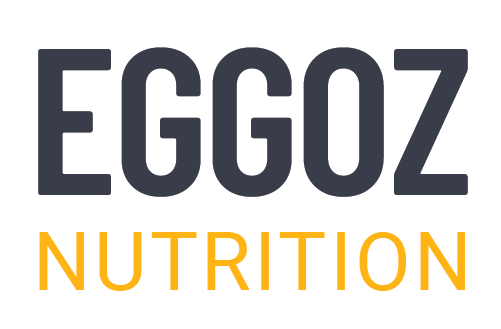Key Facts:
- Supports brain, heart, and overall health while reducing inflammation.
- Includes depression, dry skin, joint pain, and high LDL cholesterol.
- Found in fatty fish, flaxseeds, walnuts, and omega-3-enriched eggs like Eggoz.
- Eat omega-3-rich foods or take fish oil/omega-3 supplements.
- Men: 1.6 g, Women: 1.1 g, Higher for pregnant or breastfeeding women.
Trust me — maintaining a healthy diet during the fall season is not as easy as it seems. Eating consistently healthy to get all the nutrients in winter sounds like putting your neck on an iceberg, right?
The lack of sunlight during winter may disrupt nutrition levels and leave you feeling low.
Apart from essential nutrients like Vitamin D or B12, omega-3 fatty acids are vital to turning off the "depressed mode."
However, omega-3 deficiency can cause various health issues, such as high LDL cholesterol, feeling depressed, flaky skin, and more.
Today, in our latest Eggoz Eggs-press blog, we’re diving into omega-3 deficiency, its symptoms, and how to prevent it with food and supplements.
What is Omega-3?
Omega-3 fatty acids are a type of polyunsaturated fat essential for good health. They play a crucial role in brain health, heart health, and reducing inflammation.
Types of Omega-3 Fatty Acids:
- Alpha-linolenic acid (ALA): Found in plant-based foods like flaxseed, chia seeds, walnuts, and oils (flaxseed oil, soybean oil, and canola oil).
- Eicosapentaenoic acid (EPA): Found in fatty fish like salmon, mackerel, herring, and sardines.
- Docosahexaenoic acid (DHA): Found in fatty fish, seafood, and algae.
While the body can convert some ALA into EPA and DHA, the process is inefficient. Therefore, it’s important to include EPA and DHA directly through omega-3 foods like fish or omega-3 capsules to ensure sufficient intake.
What is Omega-3 Deficiency?
Omega-3 deficiency occurs when your body doesn’t get enough omega-3 fatty acids, which are essential for various bodily functions.
Symptoms of Omega-3 Deficiency:
- High levels of LDL ("bad") cholesterol
- Mood disorders like depression or anxiety
- Dry or flaky skin
- Joint pain or stiffness
- Poor heart health
What Causes Omega-3 Deficiency?
The primary cause is insufficient intake of omega-3-rich foods. Some contributing factors include:
- Dietary Insufficiency:
- Low fish consumption (e.g., salmon, mackerel, sardines)
- Limited intake of plant-based sources like flaxseeds or chia seeds
- Poor Conversion of ALA:
- The body's ability to convert ALA to EPA and DHA is limited by factors like age, genetics, and health.
- Medical Conditions:
- Malabsorption syndromes or chronic illnesses can reduce omega-3 absorption.
How to Prevent Omega-3 Deficiency?
Preventing omega-3 deficiency involves smart dietary choices:
- Eat Omega-3 Foods Regularly:
- Fatty fish (e.g., salmon, mackerel) 2–3 times a week.
- Plant-based options like flaxseeds, chia seeds, and walnuts.
- Omega-3-enriched eggs, such as Eggoz, for a convenient option.
- Consider Fortified Foods:
- Fortified milk, yogurt, and juices are good alternatives.
- Add Supplements When Needed:
- Use fish oil supplements or omega-3 capsules if you cannot meet the required intake through food alone.
Are Supplements Better for Preventing Omega-3 Deficiency?
Omega-3 supplements, like the best fish oil supplement or omega-3 capsules, can be highly effective for preventing deficiencies, particularly for individuals who don’t eat fish. However, food sources like fatty fish or omega-3-rich eggs are generally better absorbed and offer additional nutrients.
When to Use Supplements?
- For individuals with restricted diets (e.g., vegetarians or vegans).
- During pregnancy or breastfeeding, where DHA is crucial.
- For managing omega-3 deficiency symptoms or certain medical conditions.
How Much Omega-3 Should You Eat?
Your omega-3 intake depends on age, gender, and health conditions:
General Recommendations (Daily):
- Men: 1.6 g of ALA
- Women: 1.1 g of ALA
- Children:
- 1–3 years: 0.7 g
- 4–8 years: 0.9 g
- Boys (9–13 years): 1.2 g
- Girls (9–13 years): 1.0 g
- Pregnant Women: 1.4 g (higher DHA for fetal development).
- Breastfeeding Women: 1.3 g
Recovery from Omega-3 Deficiency:
Incorporating a consistent intake of omega-3 foods or supplements can improve deficiency symptoms within weeks to months, depending on individual health factors.
Conclusion:
As you can see, there’s a lot happening in the world of healthy lifestyles. It’s exciting to see how people are becoming more aware of their health and mindful of adding essential nutrients, like omega-3 fatty acids, to their diets.
Whether through omega-3 supplements, fish oil, or food sources like Eggoz eggs, it’s important to maintain balanced nutrition. Eggs, in particular, are gaining popularity as a convenient, nutrient-packed option.
So, count on Eggoz eggs to enhance your diet with essential nutrients and support a healthier lifestyle!


